By Thelma Adams | The Reel Breakdown – Mon, Nov 19, 2012 3:11 PM EST
It's that voice that got me when Liza Minnelli phoned last Friday. The way it squeaks at times and then expands with feeling; the way it rises up as if it's trying to touch you, to prod you, to share the same emotion as the speaker. The way the voice never stays still and carries a bit of her mother, Judy Garland, like a genetic imprint, but still is all Liza (with a "z").
Liza made her film debut as a lead actress in 1969 for director Alan J. Pakula in "The Sterile Cuckoo." Now available for the first time on DVD and Blu-Ray from Olive Films, the dramedy is a simple story: A young woman named Mary Ann "Pookie" Adams takes the bus upstate to a girl's college near Hamilton, New York. She meets a straight-laced boy, Jerry (Wendell 'Where is he now?' Burton), who's traveling to the neighboring men's college and badgers him into a friendship. In her freshman year, Pookie loses both her virginity and her equilibrium, but manages to come out the other end with her spirit battered but intact.
Minnelli earned an Oscar nomination for this, her first lead role in a film notable for the strong portrayal of a kooky young woman of unconventional beauty at its center. It anticipates "Love Story," which came out the following year, without the melodrama and uber-beauties Ali MacGraw and Ryan O'Neal. Pakula, having gotten his taste of directing with "The Sterile Cuckoo," went on to make the "paranoia" trilogy "Klute," "The Parallax View," and "All the President's Men." Meanwhile, the newly minted Oscar nominee went on to win an Oscar for "Cabaret" and star in "New York, New York" and "Arthur." She's recently turned up on TV's "Arrested Development." And Liza popped around by phone to discuss "The Sterile Cuckoo," her first-born and a movie of which she's still enormously and rightfully proud.
Thelma Adams: I'm so happy there's a revival of "The Sterile Cuckoo." It was made over 40 years ago and it still looks fresh and raw. When was the last time you saw it?
Liza Minnelli: It's been years. I went to the opening with everybody in L.A. At the time, I didn't care much about doing movies. I loved Broadway. And my friend Tony Bill sent me the book and thought I should play Pookie Adams. I loved the character. I fought for it and I waited. I went in to audition and everybody was dressed in kooky clothes — it was the '60s. I wore what my father would have dressed me in for school but with the zipper undone on the skirt. The shirt collar was in the sweater. And they believed in me.
TA: What happened next?
LM: So Alan Pakula, who was producing, said he would do it. His partner Robert Mulligan ("To Kill a Mockingbird") was the director. And then Alan said, "I want to direct it." We went to studios and they wouldn't accept me. They said, "She's not discovered, people. She's never been in a film." So meanwhile, I went to London and got a job in Pakula's "Charlie Bubbles" to get a credit. The studio still didn't want to do it, so Alan changed studios to Paramount and we finally got it done.
TA: Do you think it hurt your career that you're not — I hate to say it — conventionally beautiful?
LM: Of course, but neither was Pookie. I hope I helped her out a little bit. My father [director Vincente Minnelli] was very smart. After I cut my hair off — before the screen test I had long hair — he said you still look almost too distinctive. "You should dye you hair," Daddy said. "You should have it streaked."(Because I have dark Italian hair.) Daddy said, "You have to look more conventional, more nothing. And you're very distinctive." So I followed his advice and it worked.
TA: It definitely did. What I love about the movie is that it's constructed around this rare bird of a young woman. She's not conventionally beautiful like Ali MacGraw in "Love Story." Pookie doesn't fit in, although she tries. She's not an obvious love object. She's in your face. She withholds emotional information. She gets drunk and tells intimate secrets about other girls, only some of which are true. And yet she is an idiosyncratic character that fits perfectly in the American movies of the late 1960s and 1970s.
LM: The best I can do in this article is agree with you. In that era, conventional beauty was happening, in movies like "Love Story," and all those wonderful movies with perfectly happy endings. It was weird — the guys were starting to get less conventional: Jack Nicholson, John Cassavetes, and Dustin Hoffman.
TA: There's a wonderfully awkward scene when Pookie and Jerry go off to one of those seaside cabin courts in the dead of winter to make love for the first time. She wants to have sex and he's reticent once they've finally entered the chilly hotel room. And it's clearly told from Pookie's point of view.
LM: I was so into the part and into Pookie. I was looking at everything from her perspective. We went up to Hamilton College. We were really isolated. It was wonderful. I never went to college and I changed schools so much because we traveled. I knew how Pookie felt in school. Being quiet and not saying much of anything. I wasn't like her, but I understood her. She was lonely and needy and full of spirit. She was not part of the in crowd, the kind of girl that had one best friend in school. We changed schools so often you didn't have time to be in the groove and I was shy. I was much more like Pookie than Sally Bowles.
TA: How was the movie received at the time?
LM: It was received really well and I got nominated for an Academy Award. I couldn't believe it!
I was all surprised and my dad said, "You do a good job and these are the consequences." He said, "I'm really proud of you."
TA: How did your mother [Judy Garland] react?
LM: I remember being so enthusiastic about this, that I had found a part that I could play. I sent her the script and she called me. I was in New York and she said, "Why do you want to do this part?" I said, "It's a really good part." She said, "But she's so lonely."
TA: What was your response?
LM: "There's part of her in all of us, isn't there? Isn't that why you're asking, Mother?"

















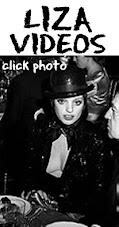


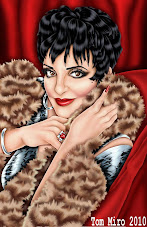

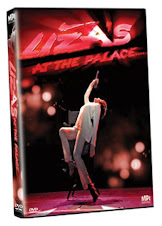






















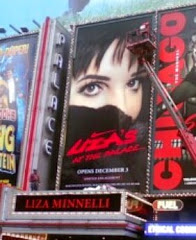



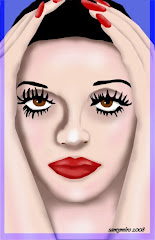
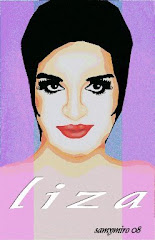


























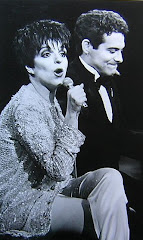


































No comments:
Post a Comment